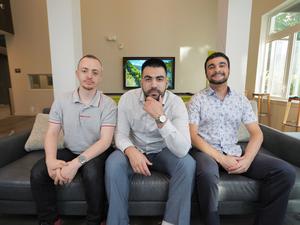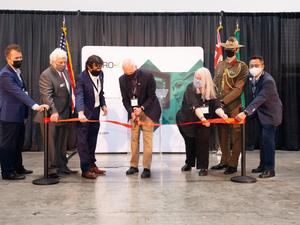Intentional awkwardness permeates every interview DevHub co-founder and CEO Mark Michael conducts with potential employees.
DevHub, a startup that mass produces websites for brands and has about 40 employees, isn’t looking for cogs in a machine. Awkwardness, the reasoning goes, scares away the faint of heart who would rather chase big salaries than big dreams.
“We get on a call, and it’s like ‘Yo, what’s up?’ And they’re like, ‘What do you mean what’s up?’” Michael said. “I let it go so they (ask), ‘Well, what do you want to know?’ I (say), ‘I don’t know, what do you want to tell me, I guess?’ Just super awkward.”
Michael’s tactics in finding the right talent are more unconventional than most. He’s not alone, however, in a larger struggle taking place across the Puget Sound region.
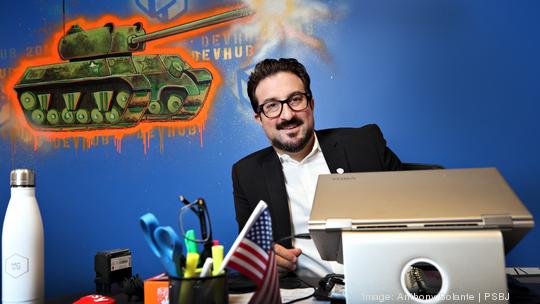
The competition for software engineers and developers undoubtedly shapes Seattle’s reputation as a tech hub, but it hasn’t made launching a startup any easier. According to recent data from the tech networking website Built In, Seattle has 2,303 tech companies, fewer than Austin (3,078), Boston (2,647) and New York City (5,762).
So, as the price tag on talent continues to skyrocket, startups have to come up with inventive ways to distinguish themselves from big tech employers. Attracting talented employees to smaller companies requires the right pitch to the right person.
‘You are not in a fair fight’
The cost of hiring software engineers and developers can take its toll on a $5 million Series A. According to Glassdoor data as of mid-June, the average software engineer salary in Seattle is $131,470, but even this number doesn’t tell the full story. Between six-figure salaries, six-figure stock options and five-figure signing bonuses, it’s not uncommon for total compensation at big tech companies to hover around $300,000 per year.
“If you spend your time as a small startup competing with people who are choosing between you and Facebook or you and Amazon, you are almost certainly going to lose,” said Scott Ruthfield, founder and CEO of the tech consulting and staffing firm Rooster Park. “You are not in a fair fight.”
For startups, selling workers on culture is key. Seattle-based Shelf Engine, a startup that automates ordering for grocers, employs 15 engineers and about 10 data scientists. The company targets its recruiting with Y Combinator’s recruiting platform to find workers interested in startups.
A big draw for workers looking to work at a startup is the ability to make a bigger impact. Plus, for aspiring entrepreneurs, it’s important to see how these companies work rather than tinker on a feature at Amazon or Microsoft for years.

Fahim ul Haq, co-founder and CEO of Educative, spent years at both Microsoft and Facebook before founding his tech training platform company. Despite the high pay and job security of big tech, he said it’s easy to become a cog in a wheel.
“You’re working on the button of a menu,” ul Haq said. “For engineers who want to build their own startups and increase their breadth, a startup is a more natural choice. It gives them a way to see things at the overall level.”
Some startups are turning to local schools to find the right fit. Tatiana Linardopoulou, technical program manager at the Tacoma-based startup Namatad, landed in her current role after Namatad founder and CEO Matt Tolentino, who is also a professor at the University of Washington Tacoma, sent an email to students about an internship.
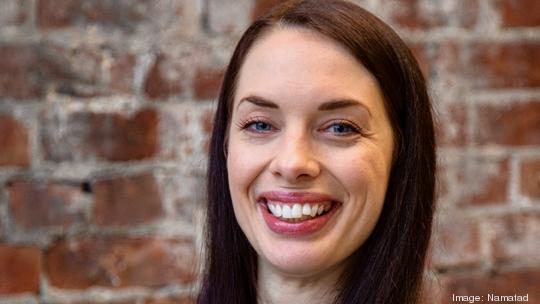
Linardopoulou graduated from UW Tacoma this year with a degree in computer science and a 3.94 GPA. When her internship ended and she was offered a full-time position in March, it was an easy decision.
“I’ve gotten a chance to work on front- and back-end code for our marketing site as well as for our customer portal site. I’ve gotten a chance to do some interviews. I’ve gotten a chance to expand our social media and meet with potential new connections and clients,” Linardopoulou said. “I do want to go into management. It would have taken a very long time to even begin to get that experience at a larger company.”
Beyond finding the right talent, keeping workers from the ever-watchful eyes of recruiters is another challenge. For Michael and DevHub, the unconventional tactics don’t end with awkward phone interviews. Promising candidates are given a week to shadow, followed by a 90-day contract-to-hire arrangement that allows them the chance to leave whenever they like. If they still want to work at DevHub after the 90 days? They get their sweatshirt, pins and full-time job offer.
It’s a tactic that has given Michael supreme confidence his employees truly enjoy working at DevHub.
“There’s like 100 (recruiters) in our building. I’m always (thinking), ‘Hey, dare you to try to get one of our people out of here,’” Michael said.
Building equity
Startups can’t rely solely on career experience to entice talented workers. Money, or at least the promise of future money, still goes a long way. Although big tech companies like Amazon and Microsoft can offer stock options that translate to big paydays, startups can offer equity in a company that could be worth a fortune someday.
The operative word is “could.”
“If you want to be competitive, you have to offer the same or similar total compensation and compensate for the risk,” said William Flynt, co-founder and CEO of the Tacoma-based startup Ivy Data. “What that means to me is a much larger employee pool of equity.”
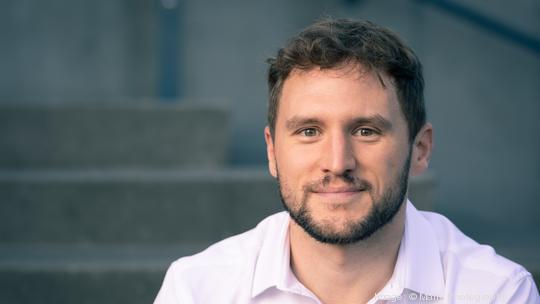
Equity is the theoretical prize that could entice talented workers away from the high, yet somewhat fixed, compensation at a company like Amazon or Microsoft.
Some, meanwhile, are worried equity won’t have the same draw it has held in the past.
According to Michael Schutzler, CEO of the Washington Technology Industry Association, the state’s new capital gains tax could diminish the value of equity and hurt startups’ chances against big tech. The tax, which is scheduled to go into effect next year but faces legal challenges, taxes 7% on the sale of stocks, bonds and other capital assets of over $250,000. The first $500 million collected each year will go toward the education legacy trust, and all remaining revenue will go toward school construction.
“Most engineers are really good at math,” Schutzler said. “A lot of engineers are going to go, ‘Maybe I’ll take the big corporate job instead.’”
Not everyone in tech feels the same way. In an opinion piece for the Seattle Times, high-profile entrepreneur and venture capitalist Nick Hanauer praised how the money “would be pumped right back into the local economy instead of languishing in financial portfolios and offshore bank accounts of rich people like me.”
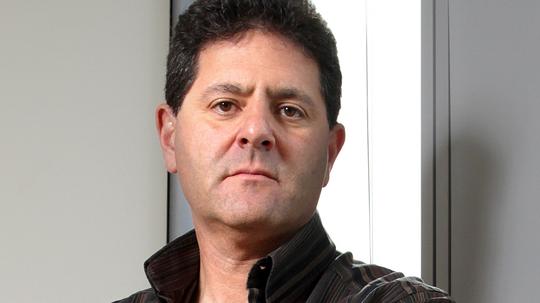
Capital gains aside, the Covid-19 pandemic has put many startups at a talent acquisition crossroads.
With most tech companies working remotely during the pandemic, founders are deciding whether they need to do all their hiring in expensive tech hubs like Seattle. The question has become whether startups want to save money by hiring remotely or reap the benefits of in-person collaboration, regardless of talent acquisition costs.
“We’ve become way more adept at working remotely during this time, and that enabled us to start looking further afield to hire people,” said Bede Jordan, Shelf Engine’s co-founder and chief technology officer. “It is hard to hire enough people in Seattle itself.
